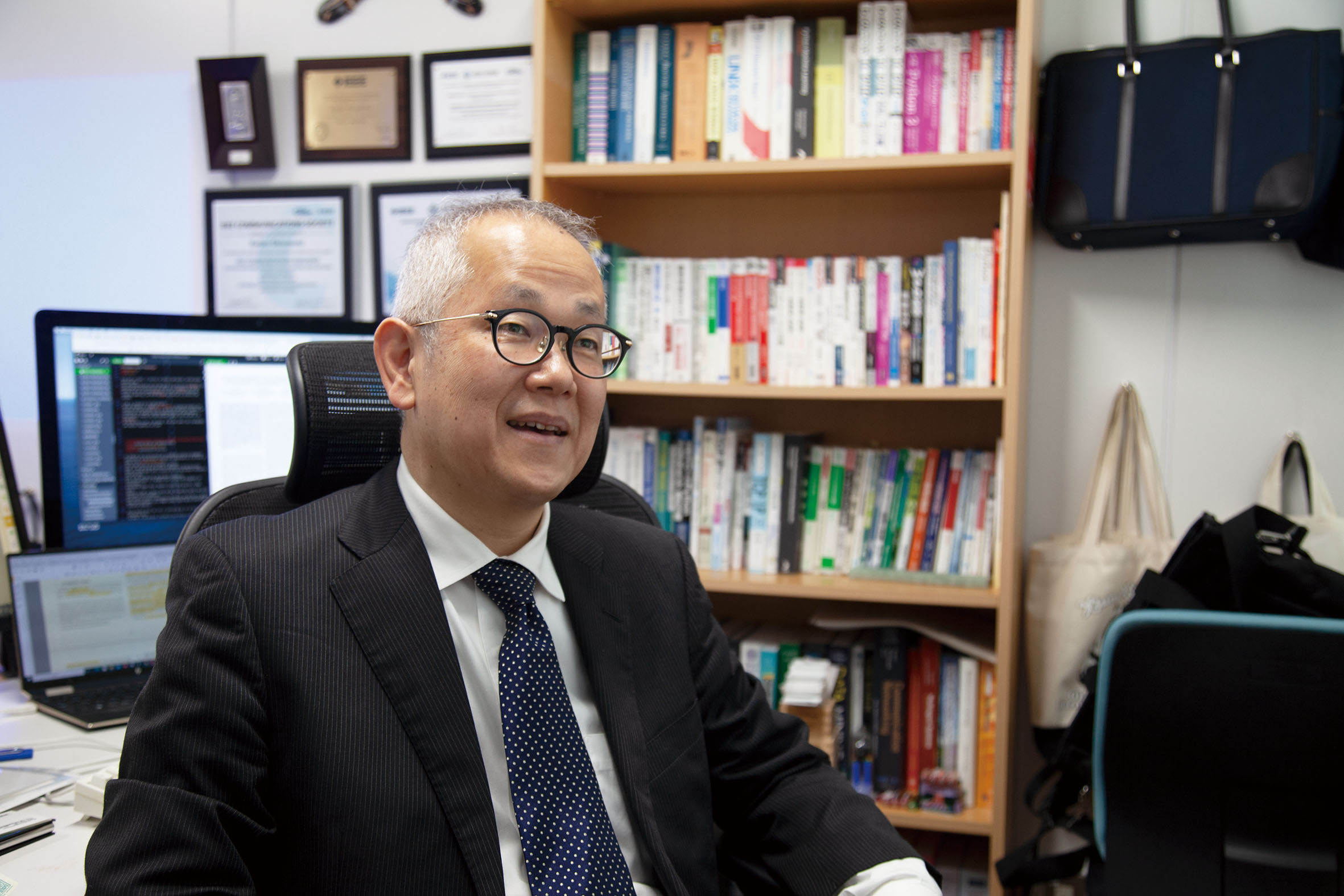Mission
Aiming to realize Society 5.0, a human-centered society that balances economic development with the resolution of social issues.

Researchers meet, technologies develop
As Moore predicted more than 50 years ago, the performance of electronic information and communications has continued to improve by a factor of about 100 per decade. The development of hardware and software has improved the efficiency of technological development, and exponential growth has continued. The development of electronic information and communications has contributed to the development of various fields, as large amounts of information are stored in the cloud and used by people all over the world. Technologies that are taken for granted today were unimaginable a decade ago. The technological level of the past decade has limited our ability to respond to challenges to humanity and the earth, and we will be able to take more effective measures 10 years from now.
I believe that academic societies play an important role in the development of electronic information and communication technology. I believe that researchers have made progress in their research by gathering at conferences, presenting their research results, and engaging in discussions with other researchers. I am sure that many of our members have had the experience of presenting their research results at research meetings, discussing them with other researchers, and then turning them into full papers. It seems to me that young researchers have grown through this process. However, I believe that technology is advanced when many researchers in related fields gather for active discussions, and innovation is more likely to occur when researchers from different fields gather for discussions.
I believe that academic societies also play an important role in the career development of researchers. If a researcher remains confined to the same environment, he or she will eventually wear a strong and heavy armor, and it may become difficult for him or her to grow further. By stepping out of your current environment, challenging yourself in a new environment, and having the experience of peeling off your skin, I believe that you may be able to grow significantly. I think that interacting with other researchers at conferences can lead to encounters that will lead to the next opportunity in your career. I believe that society as a whole will be revitalized as individual researchers grow while gaining experience in a variety of environments.
Research exchanges with foreign countries, especially with Southeast Asian countries, are effective for the development of electronics and information communications in Japan. International joint research, acceptance and dispatch of foreign students, and personnel exchanges of faculty members and researchers will foster diverse values and global perspectives, as well as promote career diversification. The Society has international sections in Asian countries and Europe. I hope that the vibrant overseas sections in these regions will serve as bridges for cooperation with other countries and promote international collaboration, thereby improving Japan's research capabilities.
Not only technology but also ethics are important. The Internet allows anyone to disseminate information, the cloud has come to store large amounts of data, machine learning has surpassed human discrimination capabilities, and blockchain enables decentralized ledger management. From various perspectives, including politics and economics, we must take into account the lessons of history and utilize new technologies for the well-being of humankind. An international framework may also be necessary. It seems to me that such a framework will not function effectively without a high level of technological capability in electronics and information communications. While the U.S. and China are competing for first and second place in the quality of research papers, I have heard many people express concern about the decline in Japan's research capabilities. I believe that there are many things that the academic societies can do to enhance the global position of Japan's research capabilities. I hope that Japan's electronic information and communication technology will develop strongly and contribute gently to the sustainable development of mankind and the earth.
How do I want my students to grow up?
(Philosophy 1) Cultivate global human resources with a high level of expertise and language skills. We want our students to become engineers who can think back to the essence, not just a superficial understanding. Technology in the fields of computers and networks has been advancing day by day. Technological innovation is occurring globally, and English language skills are important for the acquisition and dissemination of new technologies. We want our students to acquire advanced specialized knowledge, English language skills, and the ability to use information. We also want them to acquire the ability to solve problems by returning to the essence of the problem, the ability to use acquired knowledge comprehensively, and the ability to pursue new related knowledge throughout their lives, thereby contributing to technological innovation in the future.
(Philosophy 2) Nurture collaborative human resources with rich humanity and high ethical standards. In society, team members work together to successfully complete major projects. We want our students to understand that great things that cannot be accomplished by one person alone can be achieved through collaboration (the importance of collaboration). In today's interconnected world, sustainable development cannot be achieved by thinking only of Japan. In addition to communication skills, it is important to have a rich sense of humanity in order to succeed in a global society. Recent years have seen rapid technological innovation in computers and networks, and the use of technologies such as the Internet, AI, and big data, for example, has led to challenges that were unthinkable in the past. Human resources with the mindset to properly utilize technology for the sustainable development and happiness of humankind are needed. We would like to nurture human resources with high technological capabilities who have the ethical sense to correctly deal with the negative aspects of such technological innovation.